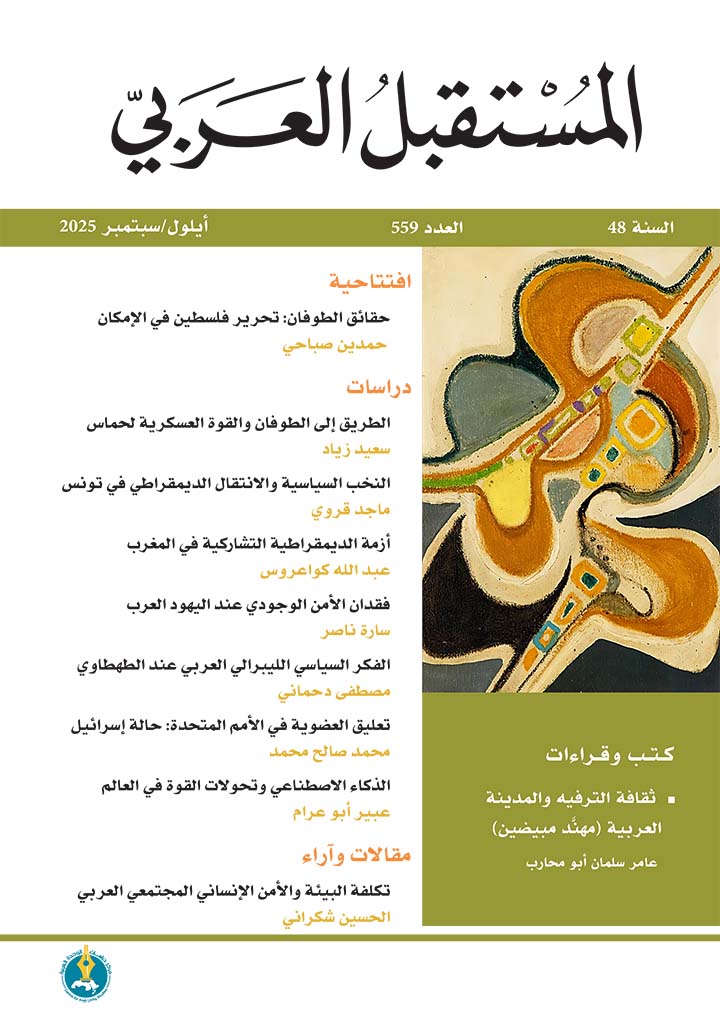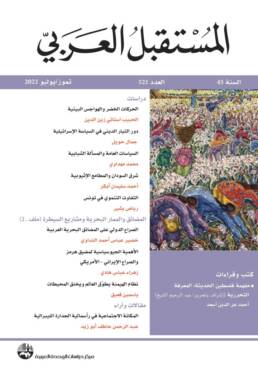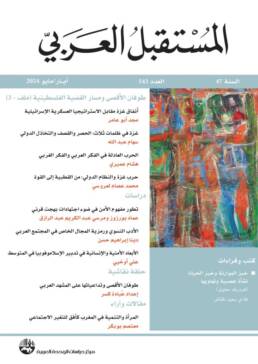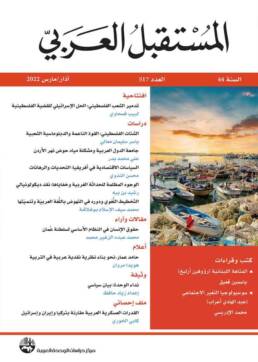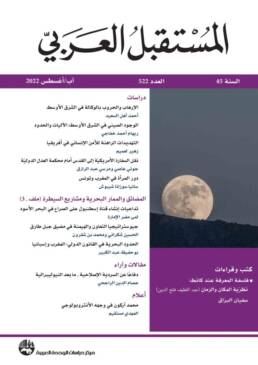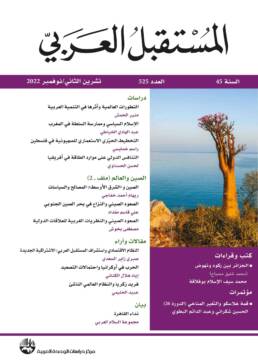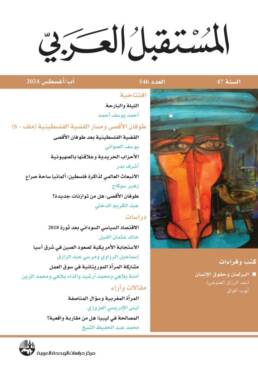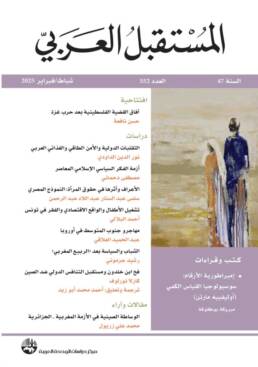Editorial
⬜ Flood Facts: Liberating Palestine is Possible Hamdeen Sabahi 7
⬛ Studies
⬜ The Road to the Deluge: The Military Buildup of
Hamas Saeed Ziad 13
This study examines how the Hamas movement built its military power and evolved from scattered resistance groups into a quasi-regular force capable of executing a large-scale operation like the «Al-Aqsa Flood» and withstanding a technologically superior army. The study analyzes the stages of Hamas’s power accumulation strategy and the development of its combat structure in terms of organization, training, and armament, in addition to its defensive infrastructure and its role in fortifying Gaza. It also presents Hamas’s plan for the Al-Aqsa Flood attack, including decision-making, deception, planning, and execution. The study concludes that Hamas has succeeded in building a quasi-regular army capable of offensive maneuvering and prolonged defense, blending guerrilla warfare tactics with conventional military methods.
Keywords: Hamas, Islamic Resistance, Gaza, Military Planning, Al‑Aqsa Flood.
⬜ Tunisian Political Elites: From a Faltering Democratic Transition to
the Failure of Democratic Consolidation Majed Karoui 41
This article analyzes the role of Tunisian political elites during the phases of democratic transition and the attempt to consolidate democracy after 2011. Although these elites contributed to establishing new constitutional and electoral institutions, they failed to transform the democratic path into a deeply rooted societal project. Their consensus largely revolved around power-sharing, without advancing toward the formulation of a new political contract based on justice, accountability, and inclusive development.
They engaged in a narrow utilitarian logic that entrenched clientelism and alliances with economic interest networks, which continued to dominate key sectors of the economy through rent-seeking practices and monopolistic privileges. This obstructed any structural reform, leaving the transitional process fragile, lacking social depth and a liberatory vision.
Keywords: Political Elites, Democratic Transition, Clientelism, Elite-Economic Alliance, Rentier Economy.
⬜ The Crisis of Participatory Democracy at the Territorial Level:
Lessons from the Moroccan Experience Abdallah Gouiarousse 58
This study examines the legal mechanisms established by Moroccan legislators to implement participatory democracy in practice, and the impact these mechanisms have had on elected councils’ governance of territorial management, particularly in enhancing the participation of residents and civil society in local public life. The study concludes that several obstacles limit the effectiveness of the relevant mechanisms, most notably the lack of independence and ineffectiveness of local consultative bodies, the limited access of citizens and civil society organizations to the right to submit petitions to territorial councils, and the marginal application of the participatory budgeting mechanism. The study also examines the most important factors that have governed the crisis of participatory democracy in practice.
Keywords: Morocco, participatory democracy, governance, local authorities, civil society.
⬜ Two Hearts in One Body: The Loss of Existential
Security Among Arab Jews Sarah Nasser 74
This paper addresses the state of existential security among Arab Jews, arguing that the Ashkenazi Jewish effort to secure the identity of the Israeli state—as shaped in the European diaspora—is closely linked to the loss of existential security experienced by Arab Jews. The paper begins with a theoretical-conceptual exploration, first tracing the migration of the concept of «existential security» from psychiatric theories to sociology and then to international relations theory. It then uncovers a surrounding conceptual network that enhances its explanatory value, including concepts such as the stranger, shelter/home, routine, and significant others.
The paper then sheds light on the relationship between Zionism and «Eastern» Arab Jews, offering a description of their initial encounter through concrete, real-life examples.
Keywords: Existential Security, Arab Jews, Ashkenazi Jews, Shelter, Memory, The Stranger.
⬜ Arab Liberal Political Thought: Origins and Formation-
Al-Tahtawi as a Model Mostapha Dahmani 91
Arab liberal political thought emerged during the Nahda (Renaissance) period in parallel with the reform and modernization projects initiated by the Ottoman Empire in the early 1840s, as well as the efforts of Muhammad Ali Pasha and his successors. The major features of Arab political thought also took shape in the aftermath of the French campaign in Egypt, which served as a civilizational shock.
Liberal political discourse in the Arab world began to surface in the first third of the 19th century, particularly in Egypt with Rifa’a al-Tahtawi, who developed a reformist discourse with a clear liberal outlook. His thought was open to the principles of European political philosophy but wrapped in a traditional, Salafi framework, seeking to reconcile Islam’s civilizational message with European modernity.
Keywords: Arab Renaissance Thought, Western Enlightenment Thought, Al-Tahtawi, Tradition, Modernity, Liberalism, Modernization.
⬜ Suspension and Expulsion from the United Nations:
The Case of Israel Mohammed Saleh Mohammed 106
In light of ongoing violations of international law and human rights by certain states, the need arises for legal and diplomatic measures that can be taken against these UN member states. Under its Charter, the United Nations has the authority to impose economic sanctions and military embargoes on states that violate its provisions. The General Assembly also has the right to deny voting privileges to any member state that fails to pay its financial dues. The UN has implemented all these measures on various occasions.
This study is a serious attempt to explore the issue of suspension and expulsion from the United Nations, with a particular focus on the case of Israel, which faces continuous accusations of violating international law and human rights in the occupied Arab territories.
Keywords: International Law, Human Rights, United Nations, Sanctions, Membership Suspension.
⬜ The Implications of Artificial Intelligence on Power
Shifts in the International System Abeer Abu Araam 123
Artificial intelligence heralds a wave of transformations across military, political, economic, and social domains. It is increasingly viewed as a tool for enhancing state power and, consequently, improving a state’s relative position in the international system. This study seeks to examine how AI contributes to strengthening the power of states within this system and, in turn, how it affects global power shifts—particularly focusing on the United States and China, as they are among the key contenders for leadership in the AI field.
The research explores the U.S.-China competition in artificial intelligence and concludes that AI holds significant potential for enhancing national power — especially for states like China, which is persistently striving for dominance in the AI domain.
Keywords: Artificial Intelligence, Power Shifts, U.S.-China Competition, Technological Revolution, International System.
⬛ Articles and Opinions
⬜ The Unspoken in Arab World Studies: Environmental Cost and the
Determinants of Societal Human Security Al-Hussein Chougranie 145
⬛ Books and Reviews
⬜ «The Culture of Entertainment» by Muhannad Mubaideen:
The History of the City and Recreational Systems
in Ottoman Damascus Amer Salman Abu Mouharib 154
⬜ Selected Arabic and Foreign Books
and Research Reports Gaby El-Khoury 162
Arabic Books: The Specter of Unemployment in the Gulf: Challenges and Solutions; Israeli Positions Post-Assad Rule: Pursuit of Fragmentation and Redrawing Influence; Governance of the Transition Toward a Knowledge State; Russia in the Era of Putin: Rights, Freedoms, and the Problematic Relationship with the West
Foreign Books: Germany and Israel: Whitewashing and Statebuilding; Undoing a Revolution: Sudan and the Politics of Debt; Conflicts in the Middle East and Africa: State, Non-State Actors and Unheard Voices; Building the Belt and Road Initiative in the Arab World: China’s Middle East Math
Research Reports: Helping UNIFIL Restore Stability in Southern Lebanon; Alaska Summit Leaves Ukraine a Hostage to Russia’s Demands of the West; Will Trump’s Ukraine Deal Force Putin’s Hand?
Add a review
You must be logged in to post a review.

